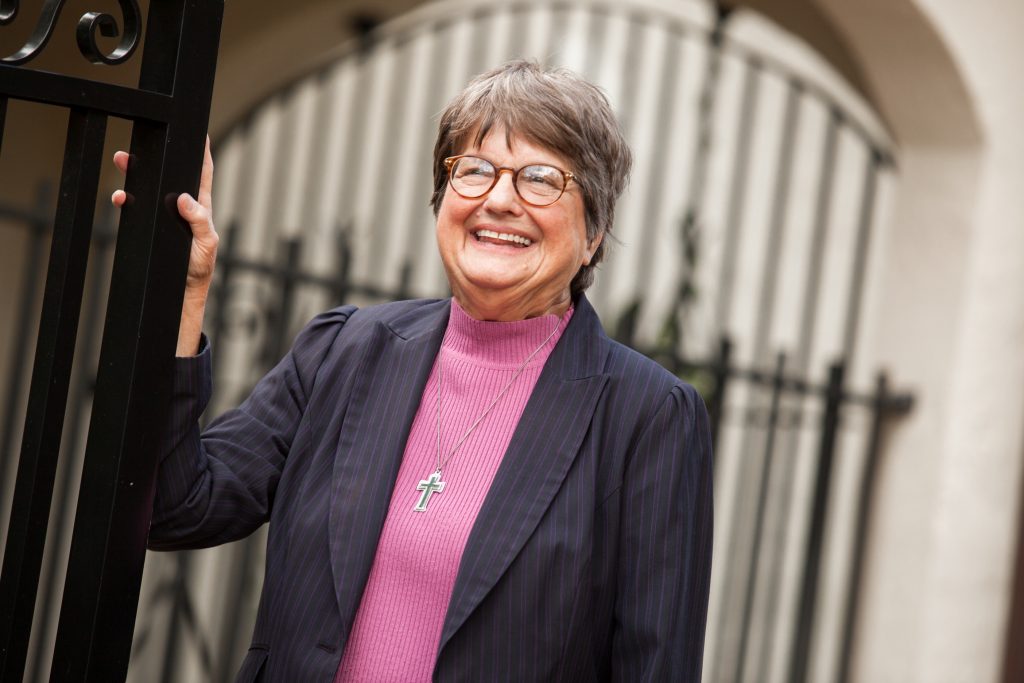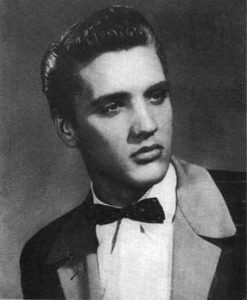Capital punishment has been used in the United States since its independence from the United Kingdom and is still applied in many of the 50 states today, with most executions in Texas, Virginia, Georgia, and Alabama. Over time, advocates have agreed that the death penalty is morally wrong and they argued that it should be considered unconstitutional, yet they have not achieved an end to capital punishment in either state legislatures or in the Supreme Court.1
During the 1700’s, advocates against the death penalty were able to restrict this punishment to those committed heinous crimes. In 1847, the anti-death penalty community helped capital punishment to be removed from Michigan. This was changed after World War I ended. In 1924, the state of Nevada decided to use lethal gas as an execution process. Then came the execution of Gee Jon for murder, which brought back death as the punishment for inflicting death or murder. 2 Anti-death penalty movements did not regain strength until Sister Helen Prejean helped to cast the debate in different terms.

Since 1981, Sister Helen Prejean has been a strong voice, and a most prominent one in the anti-death penalty community. Most humans and governments will not heed God’s commandment Thou Shall not Kill, but Sister Prejean became a strong advocate for that commandment. Beyond the religious imperative, Prejean explains how capital punishment is not useful in any way and is very dysfunctional. She has dedicated her life to God in the prison ministry in New Orleans. While Sister Prejean was living in the St. Thomas housing project, she began to write to a man who was convicted of killing two teenagers, Patrick Sonnier. Sonnier was to be executed by the electric chair in the State Prison of Louisiana.3
While Sister Prejean continuously visited Sonnier, she realized that executions were a huge issue, not only in Louisiana, but around the world. Sister Prejean wrote about her experiences in the book she wrote Dead Man Walking: An Eyewitness Account of the Death Penalty.4 She writes and explains how Louisiana’s prison system corrupts those who are involved with carrying out the execution. Especially security guards or “prison wardens” are not alert when working, along with working in that environment, is the feeling of being stressed. The stress can cause them to react in a certain ways toward prisoners and even accept the death penalty against them.5 Prejean mentions how many politicians support the death penalty mainly because they do not want to be mocked for being weak on crime by having an anti-death penalty stance.6
Helen Prejean during these times took the initiative to spend time with the victims’ families and understand why the death penalty is a win for them. The reason the victims’ families believe this is a pro for them is because it is “healing” and they receive “faux closure”. During those fifteen years, she continued to witness five other executions in Louisiana and to this day gives the younger generation information on the death penalty by writing and giving lectures.7
Prejean always took the anti-death penalty to the political system and even caused a few battles with some victories that were not big, but in that time it was still something to her. She did everything she could to gain justice, but the movement ultimately could not completely end capital punishment in the US.8

Prejean did her best to abolish the death penalty and she always gave many reasons for it, but with the issues coming against the fear of criminals and the devaluation of human lives, it is still unlikely to see its eradication in the US. Today, Prejean as the founder of “Survive” runs this victim’s advocacy group in New Orleans. In addition to that, she counsels inmates who are on death row and she provides support to the families of victims who were murdered.
Barry Scheck’s Innocence Project helps those who are innocent to increase awareness and prevent execution. Prejean has received an award from the Innocence Project of Florida for her outstanding work in advocating against the death penalty. “Sister Helen asked…”, during her speech, “…but what about the people advocating and fighting for them and the people working at innocence projects?”.9
No matter the outcome, fighting for what is morally right continues to drive advocates who stand against the death penalty. Prejean will continue to investigate flaws in the death penalty system which has led to many innocents being wrongly executed. Sister Prejean questions the justice system because of the discriminatory way that capital punishment is disproportionately applied to minorities. As she continues, there is still hope in Washington for the Death Penalty to be removed. Senator Miloscia warns against the killing of innocent people, he calls these “improper death penalty executions.”10 Although many still support the death penalty, change occurs when new elected officials like Governor Inslee pronounce themselves against capital punishment. As we learned from Sister Prejean, fighting for justice is a moral commandment.
- George Brauchler and Rich Orman, “Lies, Damn Lies, and Anti-Death Penalty Research,” 93, no. 3 (2005): 635-714. ↵
- McLaughlin, Jolie. “The Price of Justice: Interest-Convergence, Cost, and The Anti-Death Penalty Movement,” Northwestern University Law Review,108, no. 2 (2014): 675-710. Academic Search Complete, EBSCOhost. ↵
- “Biography” Sister Helen Prejean. https://www.sisterhelen.org/biography/.(2018). ↵
- Helen Prejean, Dead man walking: an eyewitness account of the death penalty in the United States, (New York: Vintage Books, (1994). ↵
- Lewis, Dorothy Otnow, Catherine A. Yeager, Pamela Blake, Barbara Bard, and Maren Strenziok. “Ethics Questions Raised by the Neuropsychiatric, Neuropsychological, Educational, Developmental, and Family Characteristics of 18 Juveniles Awaiting Execution in Texas.” Journal Of The American Academy Of Psychiatry And The Law, 32. No.4 (2004): 408-429 PsycINFO, EBSCOhost. ↵
- Daniels, Kristen Whitney. “Helen Prejean sways hearts with stories.” National Catholic Reporter 53(24), (2017): 1a-2a. ↵
- Press Release. “Innocence: Another Exoneration from Death Row—Reginald Griffin of Missouri,.” Death Penalty Information Center. (2015). ↵
- Mallory, Conally. “Abolitionists at home and abroad: a right to consular assistance and the death penatly.” Melbourne Journal Of International Law no. 1 (2016). ↵
- De La Fuenta, Alejandra. “My Experience at Innocence Project of Florida’s 2016 Steppin’Out Spring Gala.” Plain Error: The Official Blog of The Innocence Project of Florida. (2016) ↵
- Lauren Gill, “End of the Death Penalty? Washington Could Become the Next State to Abolish Capital Punishment” Newsweek, (2018). ↵



121 comments
Gonzalez Elizabeth
Good evening Destiny. This article is fantastic. Your post brings attention to the fact that many people view the death penalty and the lethal punishment as immoral. Sister Prejean became a fervent supporter of God’s commandment, Thou Shall Not Kill, despite the fact that the majority of people and governments will not follow it. Beyond the religious mandate, Prejean shows how the death penalty is highly dysfunctional and serves no purpose at all. Helen Prejean took the initiative at these times to meet with the families of the victims and explain to them why they supported the death sentence. The relatives of the victims see this as a benefit since it is “healing” and provides them with “false closure.” She saw five more executions in Louisiana over those fifteen years, and she still educates the next generation about the death sentence through speeches and writings.
Haley Ticas
I do not believe that we as a country should use the death penalty. First of all, we as citizens are the ones paying to fund it which means not purposely, but we are advocating for it. This is not a humane style of punishment, where as we as humans should not be the ones to hold another man or woman’s fate of life in our governments hands. Sister Prejean make a strong point by trying to get rid of this inhumane act.
Aracely Beltran
Great article! Capital punishment has been such a touchy subject since the beginning of time, people compare it with abortion a lot of the time. In ethics, we learn that it is morally wrong to kill people, even if it is the government doing it. I’m glad she stood up for what she believed in though. Sadly, the government is “an eye for an eye”.
Maria Rivera
The death penalty should be unconstitutional, as it is actually a violation of the Universal Declaration of Human Rights. The right to life is high up in the articles of the treaty; it’s listed as number three among the thirty articles. The biggest issue with the U.S. having the death penalty is that too many people have been wrongly convicted and then executed for a crime that they did not commit, this is happening way too often, and it’s just not worth the risk.
Lesley Martinez
For years I have heard several arguments on the morality of capital punishment. It’s shocking to read that Sister Helen Prejean has been advocating to eliminate the death penalty since 1981. To go out into the field, visit inmates, and support families of victims say a lot about this woman. As I was ending this article and read that capital punishment is unjustifiably applied to minorities makes you realize that the justice system is flawed. This is a great article and raises an important issue that must be spoken about.
Cristianna Tovar
I thought it was surprising that Prejean mentioned that many politicians support the death penalty mainly because they don’t want to be mocked for being weak when it comes to punishments for crimes. I think that even if one politician stood up for what they truly believed in, liked Prejean did, it would cause a domino effect and change the way America handles crime punishments. I am so glad that Prejean stood up for what she believed in, because little by little, she is making great changes in her country.
Olivia Tijerina
I am glad to have gotten to know Sister Helen Prejean with her persistence through during her time from what had begun once again the death penalty after WW1. I learned that the death penalty was in its existence after being independent from the United Kingdom but I also come to understand why results remain the same and are soon or in the efforts to overcome for Sister Helen Prejean is the politics that forms a scene in power keeping the death penalty and the continuation of the corrupted death penalty system. I’ve learned that the linkage to the death penalty is a difficult one to approach but is was the life of Sister Helen Prejean whom had approached them all.
Kelsey Sanchez
This article left me with a surprise because, I have read so many books that have to deal with the death penalty, and I’m glad that there are still people like sister Helen Prejean who are out there making a change and finding the justice in the world. This topic has been quite controversial, but I feel like there are many stories out there that help explain the reasoning and the background behind the death penalty just like this one. I really admire the kindness sister Helen Prejean presents and how she stands to fight for what she thinks is right. I have had an emotional appeal lately over this topic, but this article really stands out as to showing sister Helen’s perspective.
Azucena Cuevas
Prejan has really good points and it is great that she advocates for her beliefs. Personally, I think the death penalty goes beyond religious beliefs. Like the article stated, there is a lot wrong with the process and the judicial system. I think people need to advocate to reinforce rules and proceedings when it comes to the death penalty. There needs to be more ways to assure that all prison guards are alert and aren’t abusing power. There is serious issues, like murder, that many believe are better solved with capital punishment. Capital punishment is a controversial topic that is difficult to come to an agreement with. I stand in the middle because both sides have compelling arguments.
Danniella Villarreal
When I read the title I felt like the featured image and the title went together so perfectly. This was a very interesting article. I like the way the author tackled such a controversial topic as the death penalty. I also admire when people fight for what they strongly believe in, which is what Prejean does. I personally can see both sides of the argument. I know many people do not believe that the death penalty is the correct way to do things but then again many people do believe it is.